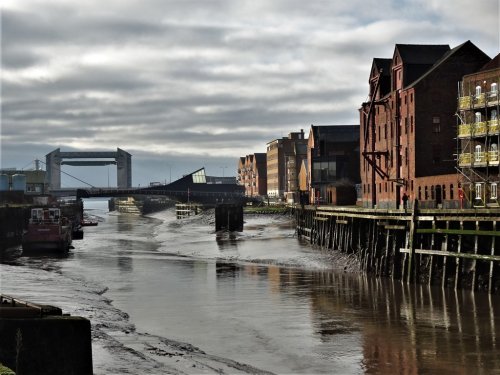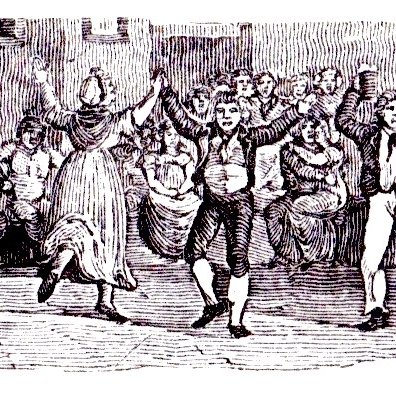Thinking forward through the past offers us opportunities to change things for the better in the future. The UKRI-funded project, ‘Risky Cities: Living with Water in an Uncertain Climate Future’, utilised place-based, historically-informed, stories to work with and engage diverse communities in building climate awareness and driving the uptakes of flood resilient actions, now and for the future. This paper explores histories of living with water and flood over the longue durée, examining how the inhabitants and Corporation of one flood-prone town (Kingston upon Hull, UK) managed water in order to survive and thrive in a risky yet resilient estuarine environment. In doing so, I examine local stories and histories of an east coast town in the medieval and early modern period, alongside a wider discussion of how local, landscape and environmental histories can help us learn for the future.
Biography:
 Briony McDonaghBriony McDonagh is Professor of Environmental Humanities at the University of Hull. Her disciplinary background is in historical geography and environmental history, and her current research interests lie in the green-blue humanities. She has published widely on the landscape and environmental change, on histories and cultures of living with water and flood, on women’s histories, and on the historical geographies of enclosure, commons and protest. Her book, Elite Women and the Agricultural Landscape, 1700–1830 (Routledge, 2017), won the Joan Thirsk Memorial Prize and Women’s History Network Book Prize. She is Director of the University of Hull’s Leverhulme Doctoral Scholarships Centre for Water Cultures as well as currently leads the UKRI-funded Risky Cities project (2020-23). Working with project partners including the National Youth Theatre, Absolutely Cultured and the Living with Water Partnership, the project develops learning histories for one flood-prone city (Kingston upon Hull, UK) and uses arts and heritage interventions to work with and engage diverse communities in building flood and climate resilience.
Briony McDonaghBriony McDonagh is Professor of Environmental Humanities at the University of Hull. Her disciplinary background is in historical geography and environmental history, and her current research interests lie in the green-blue humanities. She has published widely on the landscape and environmental change, on histories and cultures of living with water and flood, on women’s histories, and on the historical geographies of enclosure, commons and protest. Her book, Elite Women and the Agricultural Landscape, 1700–1830 (Routledge, 2017), won the Joan Thirsk Memorial Prize and Women’s History Network Book Prize. She is Director of the University of Hull’s Leverhulme Doctoral Scholarships Centre for Water Cultures as well as currently leads the UKRI-funded Risky Cities project (2020-23). Working with project partners including the National Youth Theatre, Absolutely Cultured and the Living with Water Partnership, the project develops learning histories for one flood-prone city (Kingston upon Hull, UK) and uses arts and heritage interventions to work with and engage diverse communities in building flood and climate resilience.

 Home
Home  Events
Events  Membership
Membership  Find Us
Find Us  About Us
About Us  Volunteer
Volunteer  Contact
Contact  Research Links
Research Links  Physical Archives
Physical Archives  Digital Archives
Digital Archives  1000 Year Lease
1000 Year Lease  Previous AMHS Websites
Previous AMHS Websites  Search
Search  Past Meetings
Past Meetings  Articles
Articles  Jubilee Exhibition
Jubilee Exhibition  Photo Gallery
Photo Gallery  Facebook Page
Facebook Page  Facebook Group
Facebook Group 





 Home
Home  Events
Events  Membership
Membership  Find Us
Find Us  About Us
About Us  Volunteer
Volunteer  Contact
Contact  Research Links
Research Links  Physical Archives
Physical Archives  Digital Archives
Digital Archives  1000 Year Lease
1000 Year Lease  Previous AMHS Websites
Previous AMHS Websites  Search
Search  Past Meetings
Past Meetings  Articles
Articles  Jubilee Exhibition
Jubilee Exhibition  Photo Gallery
Photo Gallery  Facebook Page
Facebook Page  Facebook Group
Facebook Group 
